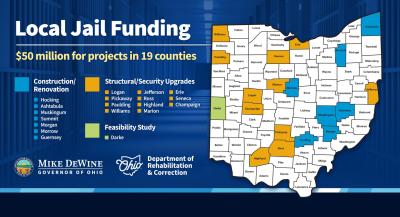Maine faces a $11B crisis to replace or repair aging school buildings. Majority of schools need renovations or updates, with limited state funding causing maintenance deficits. Commission exploring reform measures, final recommendations expected in 2025. Legislators considering bills to address funding challenges.
Portland Public Schools photo
Of Maine’s roughly 600 public schools, the commission estimates that 500 will need replacement or significant renovation by 2045.
A new interim summary from the governor's commission on school construction reveals the staggering scope of the crisis facing Maine's public school infrastructure: an estimated $11 billion will be needed over the next two decades to repair or replace hundreds of aging school buildings across the state.
The commission's summary, released in April 2025, paints a sobering picture of Maine's school facilities — many of which were built in the 1950s and ‘60s and are now struggling to meet basic health, safety and educational standards.
This marks the first time in 25 years that Maine is conducting a full study of how school construction projects are funded, according to an April 24 report from WGME-TV, the CBS affiliate in Portland.
Five Out of Six Maine Schools Need Major Upgrades
Last year, the TV station's CBS13 I-Team surveyed every public school district in Maine and found that the average age of a school building in the state is 54 years. Of Maine's roughly 600 public schools, the commission estimates that 500 will need replacement or significant renovation by 2045.
The projected $11 billion price tag is nearly equivalent to the state's entire two-year general fund budget and more than three times what Maine collects annually in property taxes, WGME noted.
The commission warns that without major changes to how the state funds and plans school construction, the problem will only grow — with more schools falling into disrepair each year.
"Absent changes, Maine is on a clear path to even higher costs — state and local — and substantial disruption to students, teachers and communities," the report stated.
Maine's School Funding Model Under Great Strain
Currently, school construction in Maine is funded through a patchwork of local property taxes, bonds and limited state aid. Only the highest-priority projects receive state support — and even then, the number of projects approved is small.
WGME-TV reported that in the most recent funding cycle, 97 schools applied for major capital funding, but only a fraction are expected to be approved. According to the summary, renovation funding is also limited: through the School Revolving Renovation Fund (SRRF), Maine offers interest-free loans, but the maximum is $2 million per project every five years — not enough to cover many large-scale upgrades.
The commission found Maine's school construction debt service also is approaching its cap and future borrowing may be restricted unless new funding strategies are adopted.
Maintenance Deficits Lead to Other Problems
The report highlights that most schools in Maine lack dedicated maintenance funding, leading to deferred repairs that ultimately drive up costs. In addition, many buildings have not been tested for potential environmental hazards like radon, lead, PCBs and PFAS — raising health and safety concerns.
Other key findings include:
- declining enrollment in rural districts, contributing to inefficiencies and higher per-student building costs;
- understaffed state oversight, with just three full-time staff at the Maine Department of Education (DOE) managing school construction, renovation and leasing; and
- lack of a statewide master plan for school capital investment, making it difficult to track building conditions or prioritize projects systematically.
Reform Measures to Be Studied Throughout 2025
The interim summary stops short of making final recommendations but outlines potential strategies the commission will explore in the coming months.
These include:
- creating a centralized office to support districts with planning, financing and design;
- developing standardized school prototypes to reduce soft costs and speed up construction timelines;
- requiring districts to contribute funds, rather than the existing all-or-nothing state funding approach, which could increase capacity for more projects;
- expanding funding for preventive maintenance and larger renovation projects;
- exploring public-private partnerships and philanthropic support to supplement state and local funds; and
- encouraging school consolidations in areas where multiple under-enrolled schools operate in proximity.
Much More Work Ahead for State School Officials
The commission was originally expected to deliver final recommendations by April 15, 2025, WGME-TV reported, but recently requested an extension, citing the complexity and volume of issues uncovered.
"It became very clear to all of us that the volume and scope, depth and complexity of information was more than we could come to some final recommendations within four months," Commission Chair Valerie Landry said during a recent meeting.
"The point of the summary is just to put all the information in one place," she added. "It makes it as transparent as possible for any interested party to see what we're working on and the hope is it will allow interested parties to comment even more specifically as they see what we've been working on."
A final report, including recommendations, is now expected in mid-late 2025.
Even as the commission continues its work, state lawmakers in Augusta are debating several bills that could reshape how school construction is funded in Maine. Members of the commission are expected to brief legislators on their interim findings before the session ends.
Today's top stories











